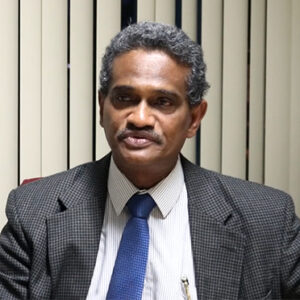Getting local content right won’t be enough to prevent failure with oil
Guyana must strive for effective oversight framework – TT Expert
Even though it is crucial for the governments of oil-producing states to ensure maximum participation and capacity building of their citizens in the industry, that alone will not be enough to save the sector from failure. According to petroleum expert and energy strategist, Anthony Paul, his home country, Trinidad and Tobago, knows this lesson all too well.
During an exclusive interview with Kaieteur News, Paul noted that Trinidad has been in the game for more than a century while adding that it has made some admirable moves to ensure that its industry had significant levels of capacity building and technology transfer. In spite of having attained this fantastic feat, Trinidad and Tobago’s economy is desperately trying to get back on its feet. Paul said, “Everyone can see that Trinidad is struggling so it shows that having local content policies and supporting laws are very good virtues. They are necessary but trust me, they are not sufficient and Guyana must not run away with that idea.”
The TT expert added, “You must have proper governance and oversight or else it will all fail, all your investment will fail or will lose value day after day.”
Further to this, Paul sought to stress that at the heart of Trinidad’s struggle today is the lack of accountability of the regulator of the sector.
Paul added, “That is my view. I know because I used to work for the regulator and they are the ones to manage it. I will give you an example if you think I am mistaken. The law says that every company operating in the oil and gas industry, no matter what they do, be it pipelines or gas petrochemicals, must have a licence. But you know what, there were many stakeholders in the petrochemical industry who did not have licences and they have been operating for 40 years.”
As a result of this state of affairs, Paul said there was extreme opposition and difficulties to implement guidelines in a bid to regularise that section of the industry. As a result of this lawlessness that was allowed, it prevented the government from abiding with a section of the law that requires a register of such licences to be properly kept and made available for public scrutiny.
“…So you see, one can get very complacent in the face of oil money…Guyana needs to be aware of this danger,” Paul added while stressing the need for civil society actors to communicate the poignancy of these arguments to the man on the ground.
Paul stressed that Guyana has to build a clear line of sight for communicating activities, impact, and outcomes to the citizens and making people feel that they have a right to demand better and know how they can go about doing so.






















